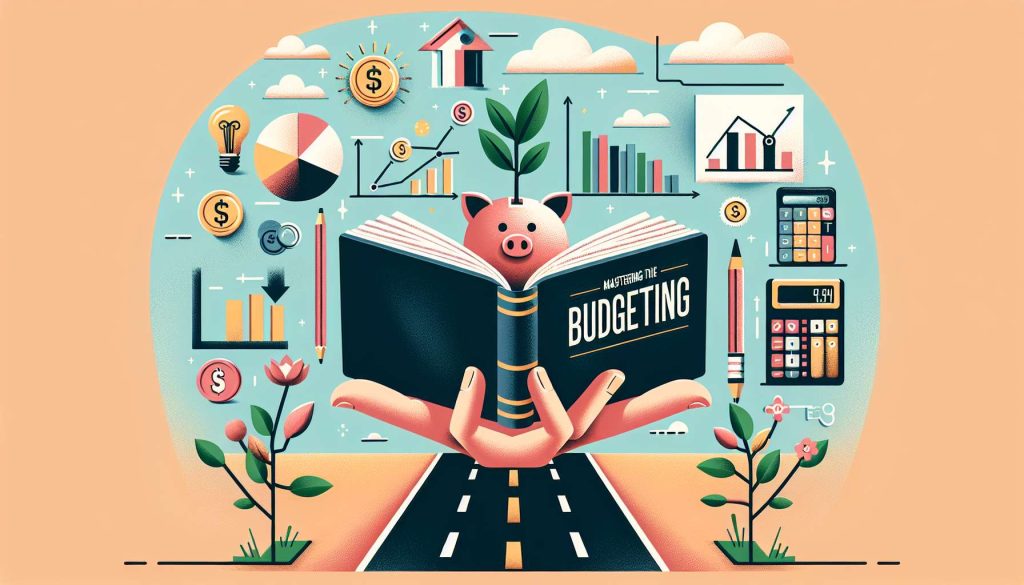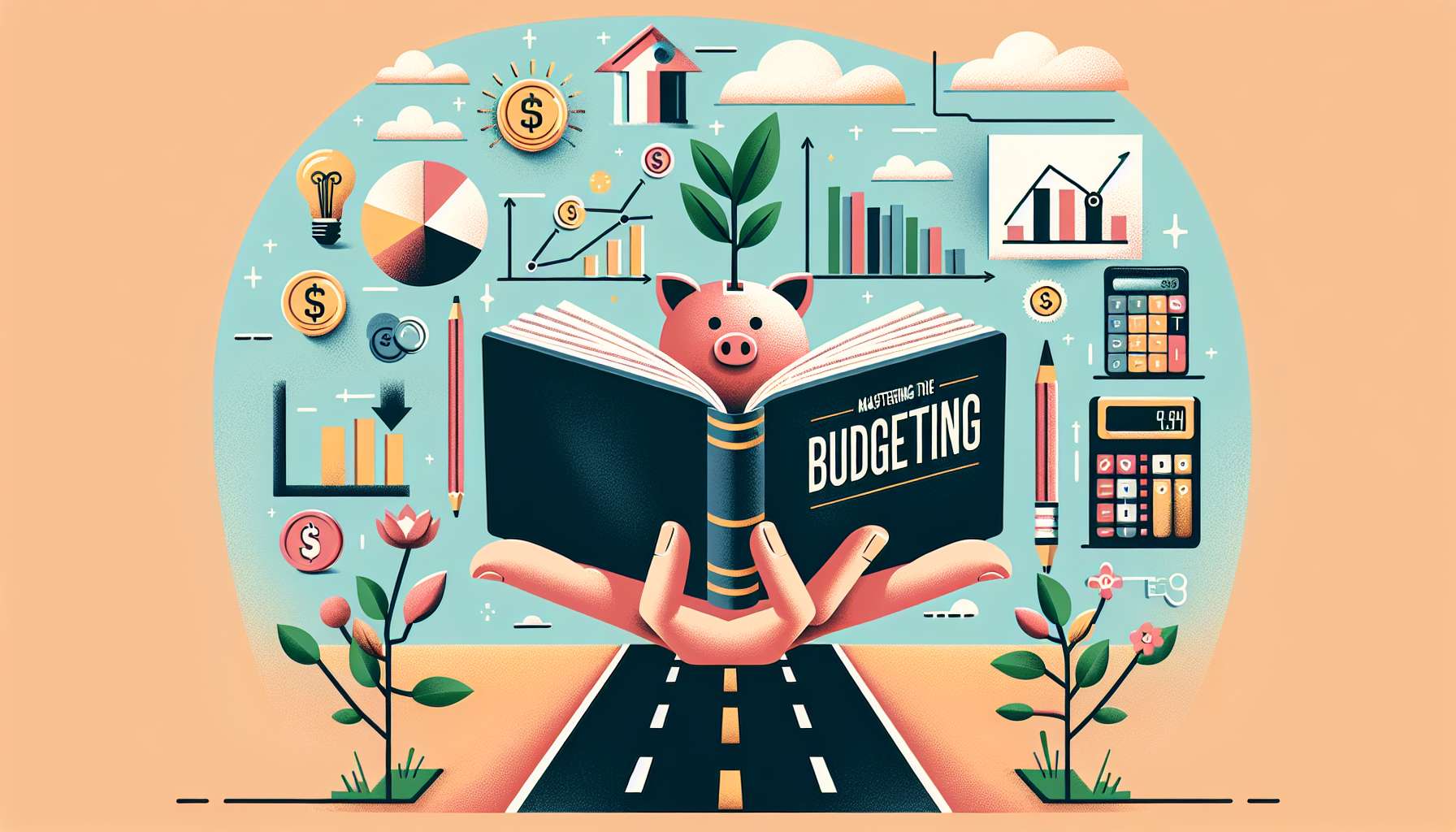Master Budgeting: Your Pathway to Financial Freedom

Anúncios

In today’s fast-paced and unpredictable world, budgeting has evolved from a basic financial exercise into a vital life skill. Rising living costs, fluctuating markets, and the growing complexity of personal financial responsibilities have made mastering the art of budgeting essential for long-term stability and peace of mind.
Budgeting is not just about restricting spending—it’s about empowerment, planning, and alignment with your goals. Whether you’re a beginner managing your first paycheck or an experienced professional seeking to refine your financial habits, effective budgeting is the foundation upon which financial freedom is built.
This guide explores the importance of budgeting, step-by-step methods to master it, common challenges, and strategies to overcome them. By developing a structured and flexible budget, you’ll gain the clarity, confidence, and control needed to create a more secure financial future.
1. Understanding the Essence of Budgeting
At its core, budgeting is about awareness and intention. It helps you understand exactly where your money is coming from and where it’s going. By tracking income and expenses, you can make informed decisions, prevent unnecessary spending, and allocate funds toward meaningful goals.
But beyond numbers, budgeting is also a mindset. It encourages responsibility, discipline, and foresight—skills that extend beyond finances into every area of life. A well-crafted budget empowers you to minimize debt, maximize savings, and achieve financial independence.
Budgeting gives you:
-
Control – You decide how every dollar serves your goals.
-
Clarity – You gain a clear understanding of your financial reality.
-
Confidence – You feel prepared for both short-term needs and long-term dreams.
When used consistently, budgeting becomes a lifelong tool for building stability and prosperity.
2. The Steps to Master Effective Budgeting
Building an efficient budget isn’t complicated—it requires structure, honesty, and persistence. Follow these five key steps to create a personalized plan that works for you.
Step 1: Assess Your Financial Situation
Start with a complete financial inventory.
List all sources of income, both fixed (salary, pensions) and variable (freelance work, bonuses). Next, track every expense—from rent and utilities to subscriptions and leisure activities. Don’t forget periodic costs like insurance premiums or annual memberships.
Once you see the full picture, categorize your expenses into:
-
Fixed expenses: rent, mortgage, utilities, insurance.
-
Variable expenses: groceries, fuel, entertainment, dining out.
-
Financial obligations: debt payments, savings, investments.
This assessment provides a foundation for decision-making. It’s the mirror that reflects your habits, helping you identify what strengthens or weakens your financial health.
Step 2: Define Clear Financial Goals
Every budget should begin with purpose. Why are you budgeting? What do you want to achieve?
Setting financial goals gives meaning to your money. These goals should follow the SMART principle — Specific, Measurable, Attainable, Relevant, and Time-bound.
Examples include:
-
Saving for a down payment on a home within three years.
-
Building a six-month emergency fund by the end of the year.
-
Paying off student loans within five years.
-
Allocating a monthly percentage for retirement investments.
Goals act as your financial compass, keeping you focused on progress rather than perfection.
Step 3: Create a Personalized Budget Plan
Now it’s time to design your plan. There’s no one-size-fits-all approach, but a popular framework is the 50/30/20 rule:
-
50% of your income for essential needs.
-
30% for discretionary spending.
-
20% for savings and debt repayment.
If your situation is more complex, a zero-based budget may work better. In this model, every dollar of income is assigned a purpose until nothing is left unallocated. This method promotes accountability and eliminates financial waste.
Whichever method you choose, remember: a budget should reflect your values and lifestyle, not restrict them.
Step 4: Monitor, Adjust, and Stay Flexible
A budget is a living document—it evolves as your circumstances change. Regularly reviewing your budget ensures it remains realistic and effective.
-
Track daily or weekly spending using apps like Mint, YNAB (You Need a Budget), or Goodbudget.
-
Evaluate progress monthly to identify overspending or areas for savings.
-
Adjust accordingly when your income or expenses change.
Flexibility is key. Life brings unexpected expenses—a medical bill, car repair, or job transition—and your budget should be adaptable enough to absorb these shocks while staying true to your priorities.
Step 5: Address Challenges Proactively
Budgeting can present hurdles, but with preparation, they’re easy to overcome.
Common challenges include:
-
Overspending: Emotional or impulse purchases can derail plans. Try using cash for discretionary spending to create physical limits.
-
Irregular income: Freelancers or seasonal workers can average income over several months to smooth out fluctuations.
-
Budget fatigue: Strict budgets can feel restrictive. Allow small rewards or “fun money” to maintain motivation.
Remember, success lies in consistency—not perfection.
3. The Key Traits of Effective Budgeting
A strong budget isn’t defined by spreadsheets—it’s built on habits and attitudes. The most successful budgets share these characteristics:
a) Realistic Planning
A budget based on unrealistic expectations is destined to fail. Be honest about your income, lifestyle, and habits. Leave room for flexibility rather than aiming for impossible precision.
b) Prioritization
Your budget should align with what matters most. Essential needs—like housing, healthcare, and food—come first, followed by debt payments and savings. Non-essential spending should never outweigh core obligations.
c) Flexibility
Life changes, and so should your budget. Adaptation prevents frustration and helps you stay committed long-term.
d) Consistency
Review your budget regularly. Financial discipline is built over time through repetition and mindful adjustments.
4. The Benefits of Budgeting
The impact of budgeting extends far beyond simple expense tracking. It’s a transformative tool that reshapes your financial behavior and mindset.
a) Financial Awareness
Budgeting sharpens your understanding of income, spending, and savings. This awareness allows you to recognize spending patterns, eliminate waste, and channel funds into more meaningful goals.
When you know where your money goes, you reclaim power over your finances.
b) Debt Reduction
Budgeting helps create a clear plan for debt repayment. By prioritizing debts and making consistent payments, you reduce interest costs and improve your credit score. With structure and discipline, debt becomes manageable instead of overwhelming.
c) Strategic Savings and Investments
A good budget integrates long-term wealth building. Setting aside dedicated funds for savings and investments allows you to accumulate capital over time. From emergency funds to retirement portfolios, budgeting ensures that money consistently flows toward financial growth.
d) Reduced Financial Stress
Money is one of the leading causes of anxiety. Budgeting alleviates this stress by creating a sense of preparedness. When you know your bills are covered and savings are growing, financial peace of mind naturally follows.
e) Empowerment and Confidence
Budgeting cultivates empowerment. You gain confidence in your ability to make sound decisions, set priorities, and handle unexpected events. Financial control translates into personal freedom and long-term independence.
5. Overcoming Common Budgeting Myths
Many people avoid budgeting due to misconceptions. Let’s debunk a few:
-
“Budgeting is only for people with money.”
False. Budgeting is how you create financial stability, regardless of income level. -
“Budgets are too restrictive.”
In truth, budgets give you freedom. Knowing your limits enables guilt-free spending within your means. -
“Budgeting takes too much time.”
Modern apps and automation make budgeting easy and efficient. Once set up, maintenance takes just minutes each week. -
“I already know where my money goes.”
Without tracking, it’s nearly impossible to spot leaks or inefficiencies. Budgeting reveals the reality behind assumptions.
By overcoming these myths, you unlock budgeting’s true potential: freedom, flexibility, and control.
6. The Psychological Impact of Budgeting
Budgeting doesn’t just improve your bank account—it transforms your mindset. It fosters discipline, patience, and gratitude.
When you set goals and meet them, even small victories build confidence and motivation. Watching savings grow or debt shrink is tangible proof that your efforts are paying off.
Budgeting also encourages intentional living—spending money on what truly enriches your life instead of fleeting impulses.
7. The Path to Financial Freedom Through Budgeting
Financial freedom doesn’t mean extravagance—it means security, stability, and choice. Budgeting is the bridge that connects your present habits to your future ambitions.
Through a well-structured budget, you gain the tools to:
-
Take control of your spending and eliminate waste.
-
Save strategically for short- and long-term goals.
-
Build resilience against financial shocks.
-
Develop the confidence to make proactive, informed choices.
Every dollar becomes a stepping stone toward independence.
Conclusion: Budgeting as a Lifelong Skill
The art of budgeting is the art of empowerment. It’s not about restriction—it’s about creating a clear path to your desired life.
By understanding your financial reality, setting meaningful goals, and maintaining consistency, you can transform budgeting from a task into a lifestyle. Over time, you’ll notice not only an improvement in your finances but also in your mindset, confidence, and overall quality of life.
Financial freedom isn’t about luck or income; it’s about discipline, awareness, and intentional choices. And it all begins with one simple habit: learning how to budget effectively.





